The Challenges of Chess Manufacturing in Amritsar, India
Amritsar, a vibrant city in India, is not only renowned for its rich cultural heritage and historical landmarks but also for its thriving chess manufacturing cottage industry. In this article, we delve into the intricacies and numerous challenges faced by the local artisans in Amritsar, particularly concerning the high expectations surrounding handcrafted chess pieces and chessboards. Additionally, we aim to educate potential customers about the inherent flaws that can be found in these unique handmade artifacts, which are often embraced by those who truly understand their value.
- The Legacy of Chess Manufacturing in Amritsar:
The art of crafting chess pieces and boards in Amritsar has been passed down through generations, forming a rich legacy that dates back several decades. Skilled artisans, like Rajesh Sharma, have dedicated their lives to perfecting this craft, blending traditional techniques with contemporary designs. The industry has thrived due to the global demand for unique, handcrafted chess sets that are deeply rooted in Indian culture and artistry.
Amritsar's chess manufacturing cottage industry has grown steadily over the years, attracting both domestic and international enthusiasts. The artisans take immense pride in preserving the traditional techniques, ensuring that each chess set produced reflects the city's cultural heritage and craftsmanship.
- High Expectations and Challenges:
Amidst the rising popularity of chess and the growing appreciation for artisanal products, chess manufacturers in Amritsar face the daunting task of meeting the lofty expectations of their customers. Handmade chess sets, though cherished for their individuality and authenticity, may exhibit certain imperfections inherent to the manufacturing process. These imperfections, however, do not detract from the beauty or functionality of the final product.
The challenge lies in striking a balance between meeting customer expectations and preserving the essence of handmade craftsmanship. The demand for flawless, precise chess pieces and boards often clashes with the reality that these products are created by human hands, which inherently introduces variations and imperfections. Educating customers about the inherent flaws and the unique value they bring is crucial to bridging this gap.
- Flaws in Handmade Chess Sets:
a. Size Discrepancies: Due to the intricate nature of handcrafted chess pieces, slight variations in size and shape may occur. These variations are a testament to the craftsmanship and should not be misconstrued as defects. The process of carving and shaping each piece individually can lead to small deviations, but these deviations add character and uniqueness to the set.
b. Colour and Grain Patterns: Chessboards made from natural materials such as wood often showcase unique patterns and variations in colour. These distinctive characteristics make each board one-of-a-kind, but they may deviate slightly from the perceived ideal uniformity. The organic nature of the materials used contributes to the richness and diversity of the chess set.
c. Surface Imperfections: Hand-carved chess pieces may exhibit minor surface imperfections, such as slight tool marks or variations in texture. These flaws, inherent to the manual manufacturing process, add character to the pieces and signify their authenticity. They are not defects but rather evidence of the artisan's personal touch and the labour-intensive nature of the craft.
d. Weight and Balance: Handmade chess pieces might possess minor variations in weight or balance, which can be attributed to the variations in the density and grain of the materials used. These variations are considered normal and do not affect gameplay. In fact, some players appreciate these subtle differences as they add an element of unpredictability and challenge to the game.
- Educating Customers:
To bridge the gap between customer expectations and the reality of handcrafted chess sets it is essential to educate potential buyers about the nature of these artisanal products. By understanding and appreciating the inherent flaws, customers can develop a deeper appreciation for the craftsmanship involved and embrace the uniqueness of each piece.
Chess manufacturers in Amritsar are taking proactive measures to educate customers through various channels. They organize workshops and exhibitions where artisans showcase their skills, share insights into the manufacturing process, and explain the nuances of handcrafted chess sets. These interactions provide valuable opportunities for customers to understand the craftsmanship involved and to witness first-hand the intricacies of creating these exquisite pieces.
Additionally, manufacturers leverage digital platforms such as websites and social media to educate customers about the flaws commonly found in handmade chess sets. They provide detailed product descriptions and visuals, highlighting the unique characteristics that arise from the manual manufacturing process. This transparency helps set realistic expectations and enables customers to make informed purchasing decisions.
By promoting awareness and understanding of the inherent flaws, chess manufacturers in Amritsar aim to foster a greater appreciation for the craftsmanship involved and the cultural significance of these handmade artifacts.
- Embracing Imperfections:
Unlike mass-produced items, handmade chess sets possess an intrinsic value and charm that arises from their imperfections. Each flaw tells a story, symbolizing the human touch and the intricate process of creation. Collectors and enthusiasts often treasure these imperfections as a testament to the artisan's skill and the authenticity of the product.
For example, a small variation in the shape of a pawn or a subtle colour difference on a chessboard can be seen as distinctive features that set apart a handcrafted set from a factory-made one. These imperfections make each chess set unique and evoke a sense of authenticity and individuality.
Artisans in Amritsar view the imperfections as an essential part of the handmade process. They believe that these flaws add character and depth to the chess sets, making them more than just functional game pieces but also works of art. By embracing the imperfections, customers can truly appreciate the craftsmanship and the soul of the handcrafted chess sets.
- Appreciating the Chess Manufacturing Cottage Industry in Amritsar:
The chess manufacturing cottage industry in Amritsar not only preserves the traditional art of crafting chess sets but also serves as a source of livelihood for countless skilled artisans. Supporting this industry not only helps sustain cultural heritage but also promotes fair trade and the growth of local economies.
By purchasing handmade chess sets from artisans in Amritsar, customers contribute to the preservation of traditional craftsmanship and support the livelihoods of skilled artisans and their families. Each purchase becomes a meaningful investment in the rich cultural heritage of the region.
In recent years, there has been a growing recognition of the value and uniqueness of handcrafted products. Consumers are increasingly seeking alternatives to mass-produced goods, favouring items that tell a story and reflect the skill and dedication of the artisans who create them. The chess manufacturing cottage industry in Amritsar aligns perfectly with this emerging trend, providing customers with a truly exceptional and authentic chess experience.
The chess manufacturing cottage industry in Amritsar faces numerous challenges in meeting the high expectations of customers seeking handcrafted chess sets. Understanding the inherent flaws and imperfections that may arise during the manufacturing process is crucial in appreciating the unique value of these handmade artifacts.
Through education and awareness, customers can develop a deeper appreciation for the craftsmanship involved and the cultural significance of these handmade chess sets. By embracing the imperfections and supporting the chess manufacturing cottage industry in Amritsar, customers not only acquire exquisite and unique chess sets but also contribute to the preservation of a traditional art form and the livelihoods of skilled artisans.






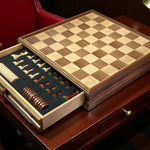



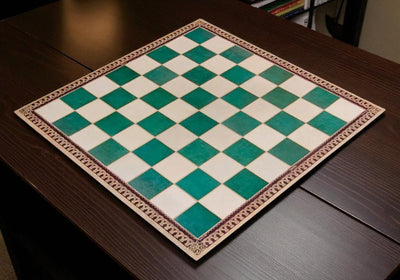
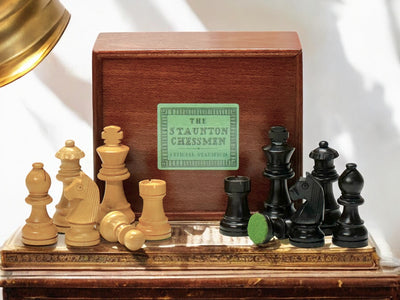
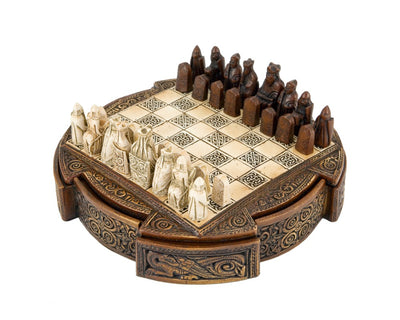

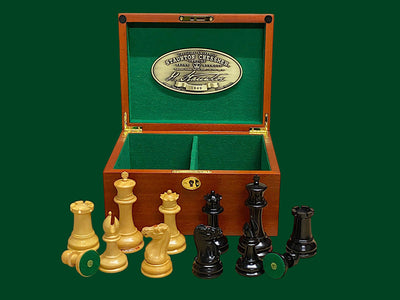
Leave a comment